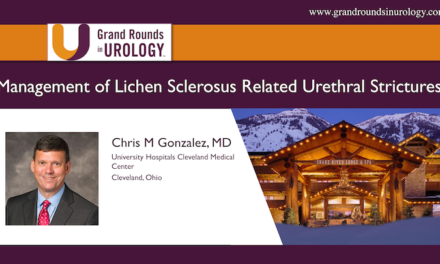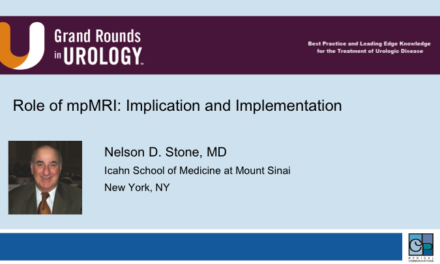Session 4:
Next Generation in Biomarkers
Session Moderator
- More than 25 years of PSA testing has shown us its limitations. To move forward, we need to incorporate imaging (i.e. mpMRI, PET, HFUS) and biomarkers to enhance detection of curable, significant prostate cancer.
- Novel precision targets have been identified in prostate cancer through genomic sequencing efforts of both tumor and germline DNA, including many mutations that may be actionable in screening and/or therapy, and many that may have implications for unaffected family members. Efforts to streamline and standardize deep sequencing protocols with uniform reporting, reduce turn-around times, and reduce costs are critical for moving forward.
- Caregivers should give more effort towards obtaining detailed family histories in prostate cancer patients. Critical cancers that need to documented beyond prostate include the following cancers: breast, ovarian, pancreatic, melanoma, and Lynch Syndrome.
- Improving the diagnostic accuracy, evaluation, and risk stratification of bladder cancers by better determining tissue, radiographic, and molecular predictors of disease risk needs to be emphasized.
- DNA repair alterations are reasonably common and worth testing for in metastatic prostate cancer and considering for high risk localized prostate cancer. There are many pitfalls to testing, and it is important to ensure that bi-allelic loss occurs when a gene presents on a report.Overall, informatics and data management is a concern for utilizing biomarkers in GU cancers. We find there is a need for long-term local ownership and management of genetic findings to lead to the establishment of a standard of care regarding genetic testing.
M. Scott Lucia, MD
University of Colorado, Denver
Aurora, CO
ABOUT THE AUTHOR
M. Scott Lucia, MD, is Professor and Vice Chair of the Department of Pathology and Director of Anatomic Pathology and of the Prostate Diagnostic Laboratory at the University of Colorado Anschutz Medical Campus (UCAMC) School of Medicine. He also serves as the Director of the Prostate Cancer Research Laboratories at UCAMC and of the UCAMC Biorepository Core Facility. Dr. Lucia received his MD from the University of Colorado School of Medicine in 1988. He completed his internship and residency in pathology at the University of Colorado in 1993. He was a research fellow in the Laboratory of Chemoprevention at the National Institutes of Health from 1993 to 1995, before returning to the University of Colorado in 1995.
Dr. Lucia served as the primary pathologist for the Prostate Cancer Prevention Trial (PCPT) and Vitamin E and Selenium Chemoprevention Trial (SELECT), sponsored by the Southwest Oncology Group; the Medical Therapy of Prostate Symptoms (MTOPS) trial, sponsored by the NIDDK; and the Reduction with Dutasteride of Clinical Progression Events in Expectant Management of Prostate Cancer (REDEEM), sponsored by GlaxoSmithKline. He directs the operation of several tissue and serum biorepositories for prostate and prostatic diseases, including those for the PCPT, MTOPS, SELECT, and the University of Colorado Cancer Center Prostate Biorepository. He has authored or co-authored over 180 peer-reviewed articles, reviews, editorials, and book chapters. His primary areas of interest include pathology of prostate cancer and hyperplasia, early detection and prevention of prostate cancer, prostate cancer biomarkers, and mechanisms of carcinogenesis.





